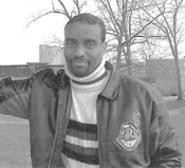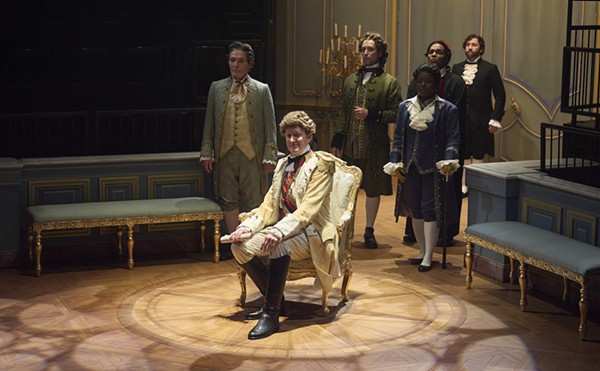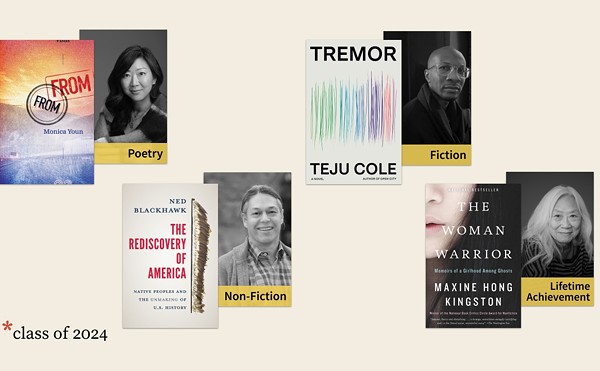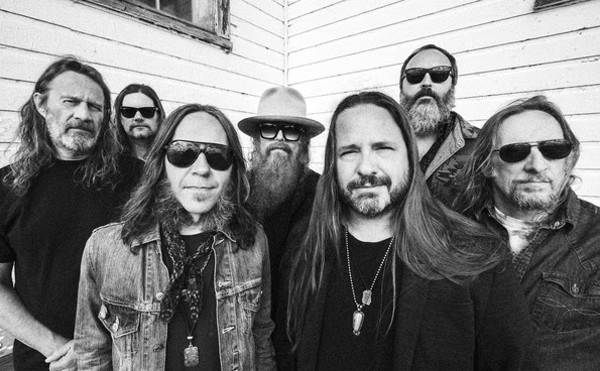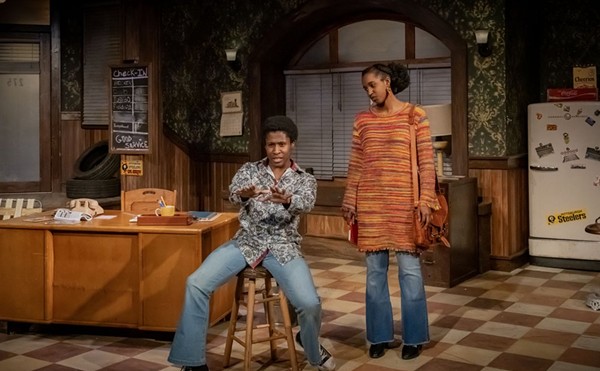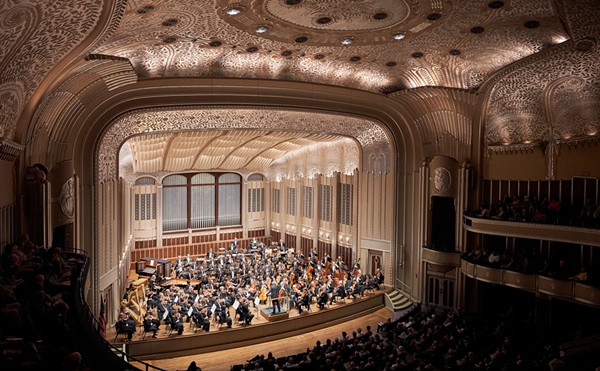Taylor's plays -- 15 so far -- are not so whimsical, however, and usually serve as a vehicle to forward a spiritual message. One of his recent creations, East 79th Street, which he produced and directed and acts in, runs this weekend at Kennedy's DownUnder. The drama covers the turbulent events of the late 1960s -- the Vietnam War, the Hough riots, and the Kent State shootings -- through the eyes of homeless people who are already dead, but must relive painful memories before moving on to the afterlife.
Nurtured by his father's acting at Karamu House and his own participation in church plays, Taylor recalls a penchant for theater "since I was old enough to think." His interest in the "spiritual realm" stems from a tumble down a set of cement stairs as a child, which led to an out-of-body experience.
"When we pass away, our whole life flashes before us in a twinkle of an eye," he says. That idea, coupled with his curiosity about the stories Cleveland's homeless people would have to tell, led Taylor to write a play with a "Twilight Zone quality" to it that spoke to the region's history. The music of the era also drew him to the subject, since he often uses music as inspiration.
"If I run out of ideas, I use the music," he explains. East 79th Street has 30 musical cues, ranging from Donald Byrd's "Christo-Redentor" to Jimi Hendrix. "I see images. I create plays like a dance choreographer creates."

